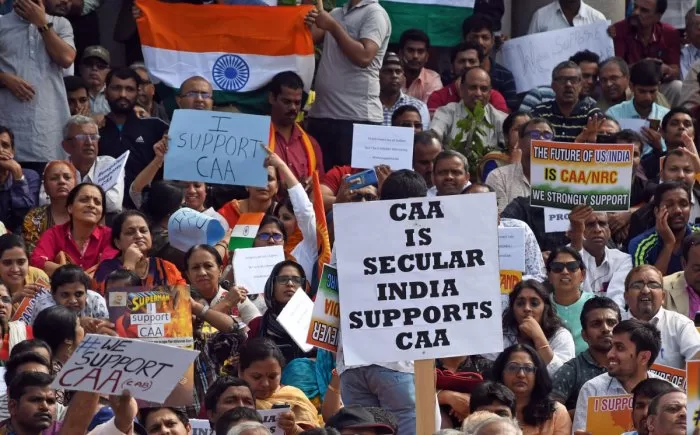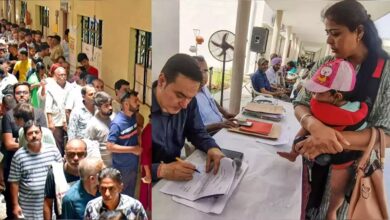CAA – An issue for the frustrated politicians?
The CAA has simply provided for early conferment of citizenship to minority individual who have come to India from Pakistan, Bangladesh and Afghanistan

By Subir Banerjee
Legal Consultant and Academician
Many people seem to be very much concerned about The Citizenship (Amendment) Act, 2019 (CAA). Various arguments are being put forward for and against the CAA by persons who have little or no knowledge about the laws relating to citizenship and/or asylum. For obvious reasons, the arguments put forward by such persons are more disturbing than amusing.
Understand what the CAA is?
This must be made clear first that one cannot understand what the CAA is all about unless she/he knows how citizenship of India can be acquired. According to the provisions of The Citizenship Act, 1955, citizenship of India can be acquired by birth, by descent, by registration, by naturalization and by reason of incorporation of new territory into India. The Act is still there, it has not been repealed, and the CAA is not meant to replace the original Act. The CAA has simply provided for early conferment of citizenship to minority individual who have come to India from Pakistan, Bangladesh and Afghanistan being subjected to religious persecution and have been residing in India for more than five years (having come to India on or before December 31, 2014). So, the question – what will happen to those who will come from other parts of the world in future, being subjected to persecution or otherwise – is not an intelligent question. The original Act of 1955, the policy of the Government relating to grant of asylum, and the international law and conventions relating to refugees are there to take care of them. The CAA is supposed to take care of a problem at hand, to fulfill the promises made to a section of the residents of India by the successive governments, both at the centre and in the states.

The question of discrimination in grant of citizenship
Now, before going into the question of discrimination in grant of citizenship, let us see how asylum is granted to persons who seek refuge in a foreign country on the plea that they fear religious persecution in case they are sent back to their country of origin. When the State Religion is the religion which a person subscribes to, the person is not granted asylum in a foreign country on the ground of religious persecution. Nobody cries foul, rather everybody sees that a demand for grant of asylum to such a person on the ground of possible religious persecution would be ridiculous. Of course he can pray for asylum on some other ground (possible persecution for political reasons, etc.). Another point to be noted is that asylum cannot be claimed as of right. Grant of asylum is discretion of the government of the country concerned.
So, it is not very difficult to see why asylum cannot be granted to Muslims coming from Muslim States on the ground of ‘religious persecution’. For the same reason, the CAA, which has been enacted to take care of persons who have already taken refuge to India being persecuted for being non-Muslims, cannot confer the same benefits to Muslims as well. However, even Muslims coming from those three specified countries or any other country can still pray for and obtain citizenship of India, not under the CAA but under The Citizenship Act of 1955 like Adnan Sami,Rahat Fateh Ali Khan, Anwar Maqsood, Sahir Ludhianvi, Begum Para, Ustad Bade Ghulam Ali, Mehnaz Begum, Zeba Baktiyar and many more has obtained.
What is the NRC?
Next comes the question of NRC. You expect your Government to make appropriate policies in order to take care of the poor, the aged, etc., but you do not want the government to have an appropriate database! Does it seem logical? What is NRC in the first place? It is National Register of Citizens. In every country, at any point of time, there are people who are not citizens of the country. These people, although not eligible for getting all the benefits of a citizen, are entitled to some basic rights under the law. Under the Constitution of India, every person, whether a citizen of India or not, is entitled to enjoy the fundamental rights guaranteed under Article 14 and Article 21. So, those who are saying that the non-citizens will be thrown out of the country are misinforming and misleading people. We are not going here into the purpose of these People. We will simply note that all developed countries maintain population database so that the Government may make appropriate policies for the development and care of all sections of the society, including non-citizens. And what is the relationship between CAA and NRC? If there were no CAA, the Government could still take initiative for preparation of NRC.
Why are some politicians misinforming and misleading ordinary, uneducated people?
Then why are some politicians, a good number of whom are well-educated, misinforming and misleading ordinary, uneducated people? There may be various reasons, but the question cannot be fully answered here and now. Time will reveal a lot. In fact, all agitations may suddenly vanish after the Lok Sabha polls. Many say that some politicians are shouting against the CAA out of sheer frustration! Frustration at the unexpected success of the Government led by Mr. Narendra Modi in many fronts that have left them without viable issues to fight with. However, this does not seem to be a correct explanation. In this vast country with so much conflict of interests, there will never be a dearth of issues for the political parties. Another view is that it may be a concerted move towards disturbing the social fabric by putting a section of the people in fear of losing citizenship. Some people are seeing international conspiracy behind the movement against the CAA. Whatever may be the reason, the criticisms put forward by the political parties and the questions raised against the CAA are all ill-founded.
Though not related to the CAA, it must be mentioned here that illegal migrants or infiltrators, however, may be deported by the Central Government following the procedures prescribed under different laws, such as The Foreigners Act, 1946 and The Passport (Entry into India) Act, 1920, but whether a person is an illegal immigrant or not will be decided by Tribunal or Court.
Please follows us for more such interesting and fact abided articles for awareness and being responsible citizen.







